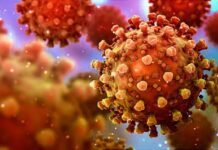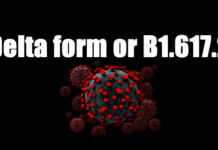
New Delhi: Where at present there has been a decline in the cases of corona in the world. At the same time, the effect of the second wave of corona in India has also reduced. But now according to the news coming, the highly contagious ‘Delta’ type of this deadly coronavirus has mutated to become ‘Delta Plus’ or ‘AY.1’. But there is nothing to be worried about in India at the moment because still very few cases are being seen in the country. Scientists have given this information in this regard.
In fact, the ‘Delta Plus’ variant is caused by a mutation in the delta or ‘B1.617.2’ variant of the virus, which was first identified in India and is essential for the second wave of the pandemic. was responsible. While there is no indication so far as to how deadly the disease can be caused by the new variant of the virus, Delta Plus is an antagonist of the ‘monoclonal antibody cocktail’ treatment that has recently been approved in India.
On the other hand, Vinod Scaria, a scientist at Delhi-based CSIR- Institute of Genomics and Integrative Biology (IGIB), tweeted on Sunday due to ‘K-417N’ mutation B1.617.2′ type has been formed which is called ‘AY. Also known as .1’.
He also said that this mutation has occurred in the spike protein of ‘SARS COV-2’, which helps the virus infect human cells by going inside. Along with this, Scaria wrote on Twitter that, “The type stemming from ‘417N’ in India is not very much yet. These sequences have mostly come to the fore in Europe, Asia, and America.
Scaria also suggested that the mutation may also be related to immunity against the virus. On this, immunity expert Vineeta Bal said that “Although the use of ‘antibody cocktail’ has come as a setback due to the new type of virus, it does not mean that the virus is more contagious or the disease caused by it is more severe.” will be fatal.”

Along with this, the visiting teacher force at the Indian Institute of Science Education and Research, Pune also said that, how contagious this new type is, it will be known only in testing its ability to spread rapidly or it can be reversed. He also said that the quality and number of antibodies that protect cells from pathogens in a newly infected person are not likely to be affected by the mutation.
Respiratory specialist and medical researcher Anurag Aggarwal fully supported Bal’s view. Aggarwal, Director, CSIR-IGIB, said that there is nothing to worry about in India regarding this new type of virus.
One important thing that he said is that this new type of virus will now have to be tested from the blood plasma of people who have taken both doses of the corona vaccine, which will show whether this new corona variant is also able to dodge immunity. . For now, everything will depend on research.













































